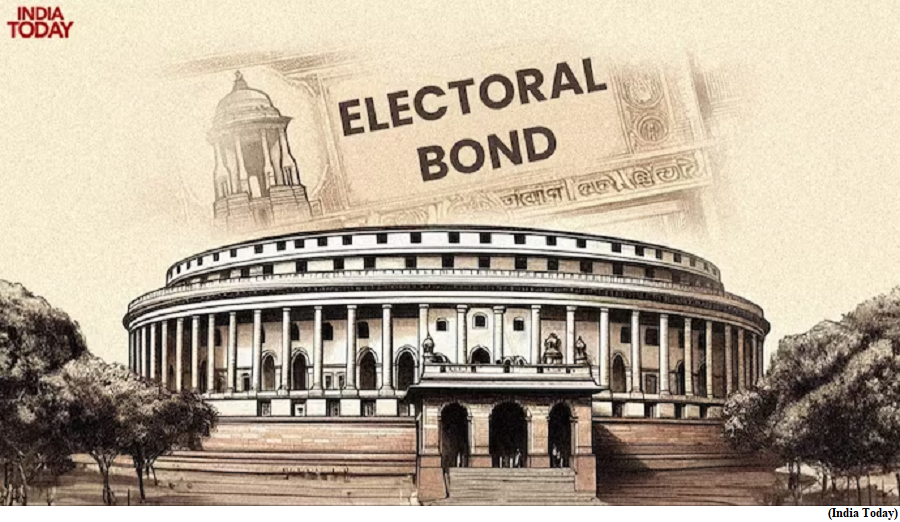Why did the SC invalidate electoral bonds? (GS Paper 2, Judiciary)

Why in news?
- The Supreme Court has declared the Electoral Bonds Scheme as unconstitutional. Donor anonymity was the main feature of the scheme, which has been criticised for long by transparency activists. These bonds constituted an important means of funding political parties since 2018.
- The court found that the scheme violated the citizens’ right to information about the sources of finances raised by political parties. It directed the full disclosure of all details of contributors, recipient parties and denominations.
What was the scheme?
- An electoral bond is in the nature of a promissory note which shall be a bearer banking instrument that does not carry the name of the buyer or payee.
- Any citizen or company could buy these bonds in denominations of ₹1,000, ₹10,000, ₹1 lakh, ₹10 lakh, and ₹1 crore and donate it to a political party.
- It can be encashed only through a bank account with an authorised bank. The State Bank of India was the bank authorised to issue and encash these bonds.
What changes were made for the scheme?
- Section 13A of the Income Tax Act earlier said political parties must maintain a record of contributions above ₹20,000.
- The Finance Act 2017 amended this to make an exception for contributions through electoral bonds. As a result, parties were not required to maintain any record of what they received through the bonds.
- Section 29C of the Representation of the People Act (RPA), 1951, earlier said parties should prepare a report on contributions in excess of ₹20,000 from any person or company in a financial year.
- This was amended in 2017 to the effect that contributions through electoral bonds need not be included in the report.
- Under Section 182(3) of the Companies Act, companies were required to disclose details of contributions to a political party, including the amount and the party’s name, in its profit-and-loss account. However, after the amendment, it was only required to reveal the total amount given to parties in a financial year.
How did the government defend it in court?
- The government’s main points in defence of the scheme was that it allowed any person to transfer funds to political parties of their choice through legitimate banking channels and helped prevent unregulated contributions through cash.
- The confidentiality assured to the donors is beneficial to them as it promotes contribution and clean money to political parties. The use of banking channels will curb the role of black money in election funding and anonymity ensures that the donors do not fear retribution or coercion from parties to which they have not contributed.
- The government claimed that citizens did not have a general right to know the funding of political parties. The right to know was not general in nature, but one evolved by courts for the specific purpose of enabling the voter’s choice of electing clean candidates.
What did the SC rule?
- In past judgments, the apex court has held that voters have a right to information that is essential for them to exercise their freedom to vote. The court, therefore, held that information about funding to a political party is essential for a voter to express the freedom to vote in an effective manner.
- The Electoral Bond Scheme, to the extent that it infringes on this right to information by anonymising contributions through bonds, violates Article 19(1)(a), which pertains to freedom of expression.
- As far as the purpose of curbing black money was concerned, the court applied a proportionality test, viz., whether the abridging of the voters’ right to know through donor anonymity was achieved through the least restrictive means.
- It said alternatives such as funding through electronic transfer (for small contributions) and donations to an Electoral Trust (for larger amounts) were available.
- As the government was unable to establish that the scheme is the least restrictive means to balance the right of “informational privacy” to contributors and the right to information on political contributions, the amendments to IT Act and RPA were unconstitutional.
Companies Act:
- On the changes to the Companies Act, it ruled that the deletion of the disclosure requirement on details of contributions violated the voter’s right to information. Also, the scheme allowed both profit-making and loss-making companies to make political contributions.
Earlier, companies could only donate a percentage of their net profit. As the harm in the form of quid pro quo is much higher in the case of loss-making companies, the amendment was ruled manifestly arbitrary.


